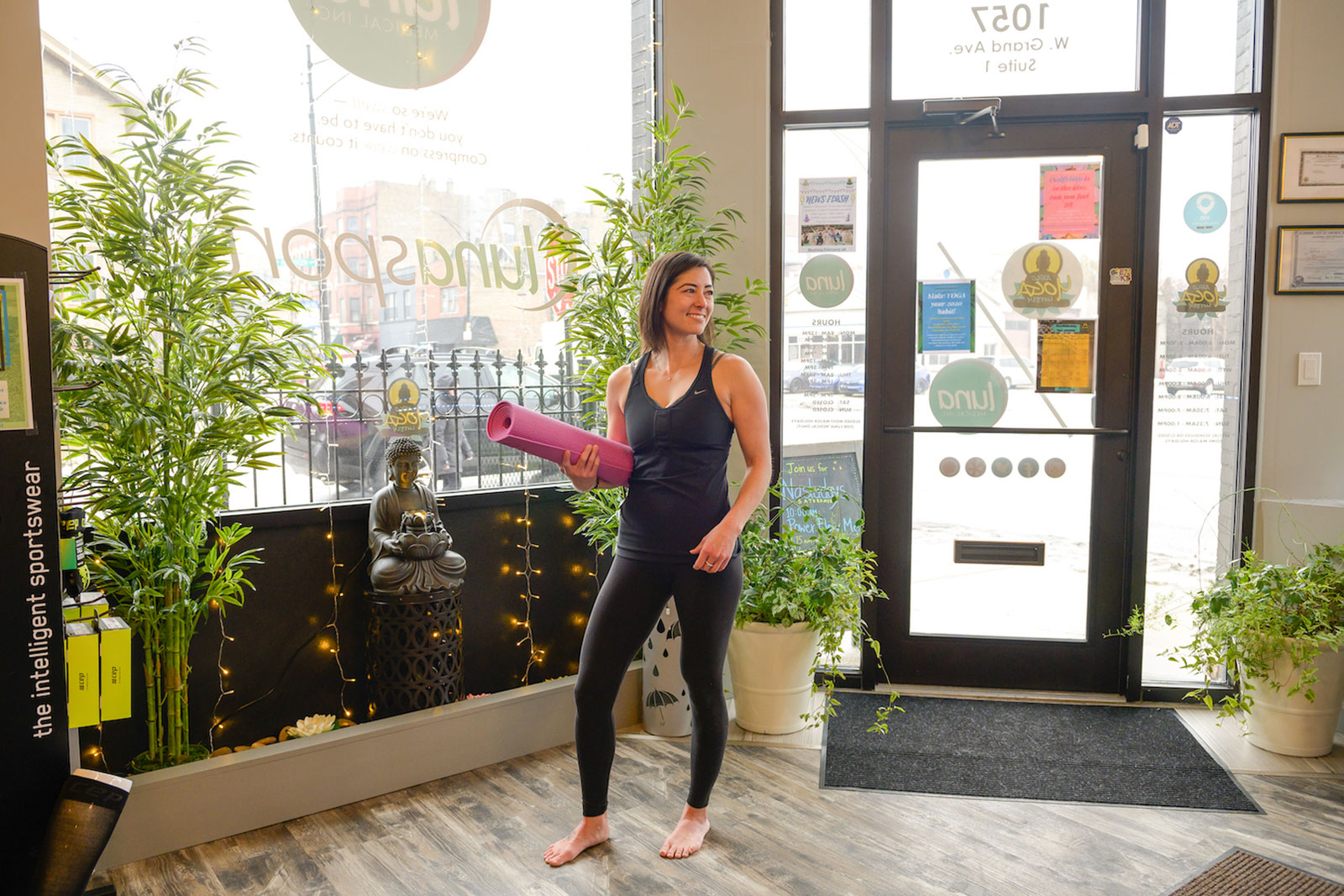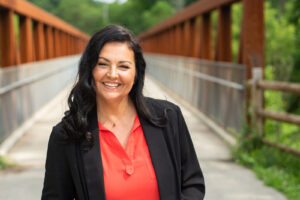As told to Britt Julious
At 31 years old, my whole world changed.
I was in the middle of a thriving career, newly married and trying to live life in Chicago. Then my whole world came tumbling down when I was diagnosed with acute lymphoblastic leukemia on February 14, 2014. Happy Valentine’s Day to me.
By June 2014, I had a stroke and seizures. The stroke left me temporarily paralyzed on my left side. Once I went into remission, I slowly started gaining weight, putting on around 30 pounds, the heaviest I had ever been. In July 2015, I finished chemotherapy, skipping the rest of the PEG-asparaginase. Three weeks later, I relapsed. I didn’t have many options left. Later, immunotherapy worked. I was in remission again and headed straight to the hospital for a stem cell transplant. Seven months later, as I was recovering slowly from my stem cell transplant, I heard the one piece of news I didn’t want to hear again: “Your cancer is back.” My husband held me as I cried. I just didn’t know if I could do it all again, mentally and physically. But I took a second, dug deep, and knew that I had to fight. My medical team decided it would be best to do another round of immunotherapy, and now, I have been in remission since the end of October 2017.
[Post-cancer], I had trust issues around my body which, to be honest, still creep in from time to time. I had to relearn how to connect with it, to understand what was making me feel sick as opposed to just not having a good day. All through treatment, hospitalizations and my stroke, I continued to incorporate exercise into my daily routine the best that I could. I started with walks every day, continuing to set goals for myself to walk a little further [and] faster each time. Then I incorporated body weighted exercises, eventually leading into weights. I grew stronger every day and it helped with the side effects of chemotherapy. The human body is a resilient, amazing machine.
I am now living my full life. Health and fitness [are] my priority. I received my 200-hour yoga teaching certification along with my personal training certification. I am using these skills to help other women going through cancer thrive by living the best life they can while undergoing treatment and transitioning into their new normal.
I now help women through survivorship so they never have to feel what I felt after treatment ends, from the emotional turmoil to the physical side effects. When you are diagnosed and in treatment, there’s a very specific plan to follow. Once treatment ends, they just let you go and say to follow up every few months. But there are no guidelines or protocols for survivorship. I want to be able to guide women to a better place than when they began their cancer journey.







